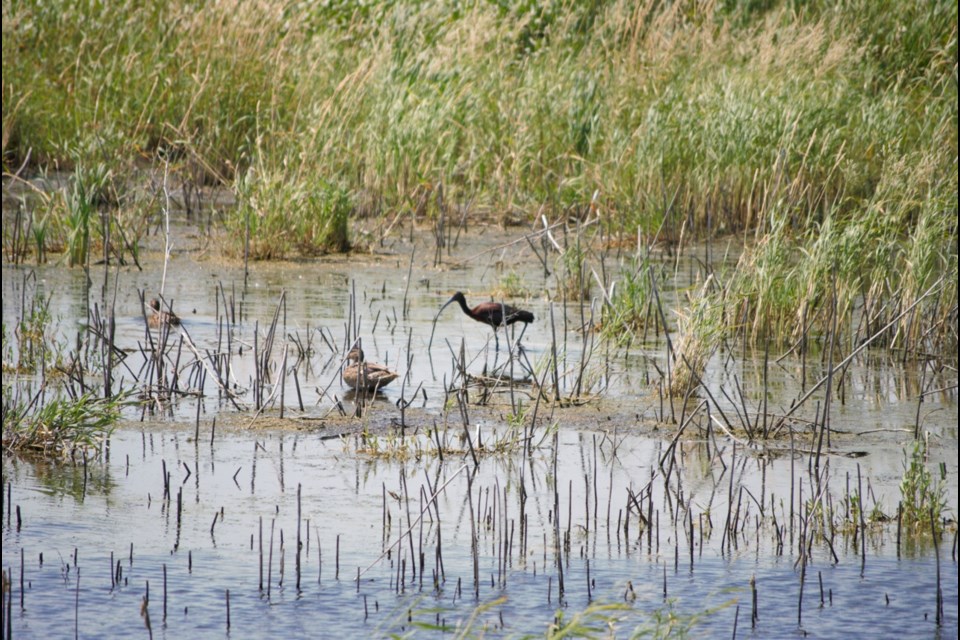ESTEVAN — A southeast Saskatchewan family's property has gone to the birds this summer, and that's a good thing.
Lauren Packer said the farm, located between Estevan and Bienfait, has become home to some glossy ibis or white-faced ibis birds this summer. The birds were first spotted around July 6 or 7 and were still on the land as of Monday afternoon.
"It's a shocker to me because the only time I've ever seen an ibis was in Florida. And it was white," said Packer. "These are black and iridescent in places."
When she and her family first saw the birds, they stopped what they were doing to get a better look. She estimates 10-20 of the animals have been staying.
She would like to have somebody help her properly identify the birds because it's been hard to tell. She initially thought she was dealing with the glossy ibis, but a lot of people in the Saskatchewan bird communities have said they're their white-faced counterparts.
"They're hard to get to. They're out in sloughs and they kind of stand in the tall grass, but they scare up easily when you drive by. They startle easy, so you can see them always up flying."
If they do fly off, they eventually return to the sloughs.
Packer said she and her kids have spent a lot of time watching them in the past couple of weeks. They get in the family van, drive to the site, watch the birds and try to get photos of them, which has proven difficult, even though she has a good zoom lens on her camera.
These birds haven't been seen on her land before, either.
"What's so strange is the glossy ibis, if it is it, its range in North America is only on the eastern coast of Florida. It mostly lives in Africa and Australia. That's why, if it's glossy, it's really rare. The white-faced ibis does live in North America, but mostly in the south."
Her research found that the white-faced ibis typically come into the mid-west U.S., but people in the Saskatchewan Facebook bird groups have seen them.
Packer said she loves birds and enjoys watching them, listening to the calls and trying to figure out what species they are.
"The kids and I like to bird watch and identify calls," said Packer.



